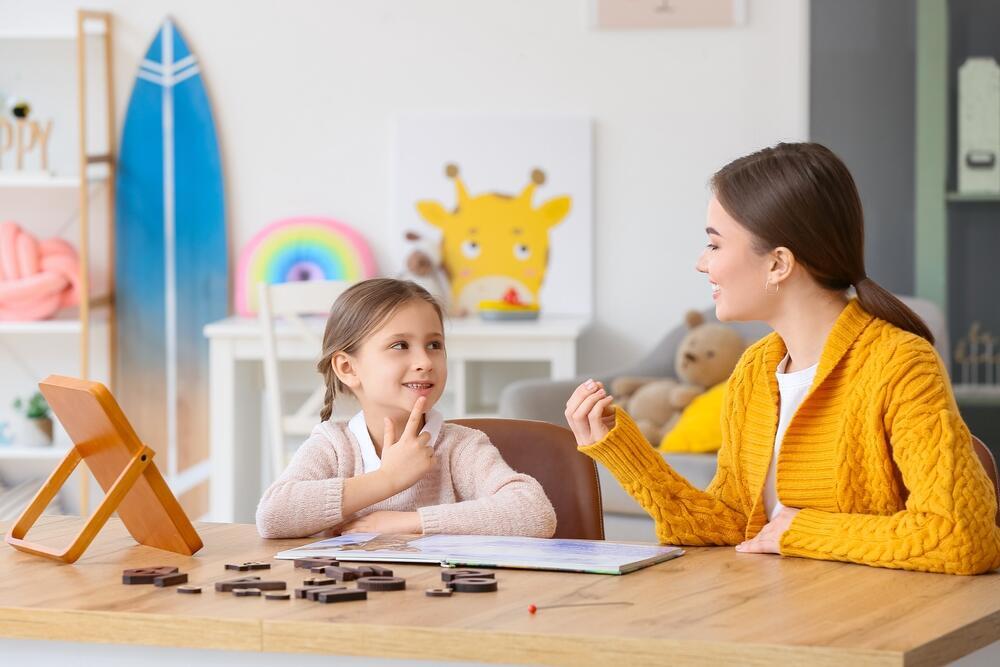This happens to almost all of us: we want to say a word, but it "escapes" us, we get stuck in the middle of a sentence, or we use many filler words like "like," "um," "you know." This phenomenon is called retrieval difficulties, and it can happen at any age.
To understand why this happens, we can liken the brain to a grocery store. Words are the products, and the store owner, the language center, is responsible for supplying them to the customer on demand. When the store owner needs to retrieve a product from the inventory, it means that the product definitely exists, and the task is to find and extract it. If the product is missing, it cannot be retrieved simply because it does not exist. Yana Waxman, a speech therapist at the Child Development Institute and the Hearing Institute at Meir Medical Center, explains the problem:
When we talk about word retrieval, the vocabulary is established, and the difficulty lies in retrieving from it a word that is definitely known and familiar. When the vocabulary is not yet established and is in the process of acquisition, it is not a retrieval difficulty but a lack of vocabulary.
How do retrieval difficulties manifest in children?
The term "retrieval difficulties" is not used before the age of four, which is the average age at which the basic lexicon is acquired and internalized (of course, in accordance with the individual pace of language acquisition of each child). In this context, it should be noted that if the child speaks more than one language, it is important to observe whether the retrieval difficulties are seen in both. Otherwise, it may be a lack of vocabulary in one of them.
Continuing with the grocery store analogy, when a new product arrives at the store, it needs to be received and coded accordingly, so that it can be supplied quickly and efficiently. The more coding keys there are, the higher the chance of finding the right product at the right time. The same goes for words; the more representations a word has, the higher the chance of retrieving it at a given time. For example, the word "dog" has a visual representation (what it looks like), an auditory representation ("woof woof"), semantic representations (lives in a kennel, barks), phonological representations (starts with the sound "d"), experiential representations (a pleasant pet or a memory of a bite), and more. The more a child is exposed to a word and in broader contexts, the number of representations of the word increases.
When a child has difficulty retrieving words, it can be part of broader language difficulties or a focused difficulty. Therefore, when a child comes for an evaluation with such a complaint, the goal of the diagnosis is to review all language abilities, isolate the retrieval issue, and pinpoint at which stage in the coding the failure occurred. For example, when we present a picture of a "fork," one child might say "knife," another "syringe," another might say "um... the one with the four lines in the kitchen," and the last one might say "um, the one you use to... with food." A precise analysis of the types of errors is key to building an appropriate treatment plan.
How is the problem diagnosed?
If you suspect retrieval difficulties in your children, it is recommended to seek a diagnosis from a speech therapist. Meanwhile, there are some simple and enjoyable activities you can do at home with children before, during, or after the diagnosis.
- Sorting objects according to different categories: transportation tools, kitchen tools, animals, clothes. During a car ride or a park walk, think together about words with common themes: words related to the weather, things that are shaped like a triangle, or finding a common theme for a group of words.
- Inventing names for stores: a store that sells pastries, screws, vegetables, games.
- Giving mutual definitions: the other person has to guess what it is (I see something that is shaped like a rectangle, has three colored circles, and helps us know when to go and when to stop).
- Saying as many details as possible about a specific word: each detail earns a point, and the winner is the one who gives the highest number of details.
- Playing "Country, City, Animal, Plant, Inanimate": a general knowledge game that tests the participant's ability to find words starting with a given letter for each of several general categories.
Diagnosis and treatment of retrieval difficulties are important to reduce frustration, facilitate efficient language development, and improve overall learning ability, as every new learning requires us to encode new information, with an emphasis on learning to read and write.
Retrieval difficulties in older age
Returning to the grocery store analogy. In older age, after many years of regular maintenance of the store, during which tens of thousands of products have been coded, problems begin to emerge. Occasionally, a product is missing from a shelf where it was supposed to be, sometimes it takes longer than usual to find the desired product, and there is a feeling that the supply rate is becoming slower.
We all occasionally feel the sensation of "it's on the tip of my tongue," a normal phenomenon that becomes more frequent with age. Over the years, changes occur in the nervous system, and the processes of acquiring new information, processing, and retrieving it become slower and less efficient.
When retrieval difficulties appear suddenly and sharply, or when the frequency of retrieval difficulties increases in a relatively short time, to the point that the person forgets simple and common words, disrupting the flow of conversation, it is recommended to see a doctor promptly, and subsequently a speech therapist for a thorough examination.
It is important to distinguish between "normal" retrieval difficulties and those that appear after a stroke, head injuries, or neurological diseases related to the brain's language center. When retrieval difficulties appear suddenly and sharply, or when the frequency of retrieval difficulties increases in a relatively short time, to the point that the person forgets simple and common words, disrupting the flow of conversation, it is recommended to see a doctor promptly, and subsequently a speech therapist for a thorough examination, diagnosis, and mapping of retrieval difficulties in relation to overall language abilities, and treatment if necessary.
The treatment usually includes two main paths:
1. Intensive learning of retrieval strategies through various channels in a focused and systematic manner.
2. Providing compensatory strategies to allow the continuation of conversation despite the failure to retrieve target words. Compensatory strategies include learning to use indirect descriptions of the target word, using gestures, and more.
Actions that may help cope with minor retrieval difficulties:
- Using context: creating contexts for words. For example, if a person has difficulty remembering names, they can make a photo album with names attached to each picture or create a family/community tree to link the figure to its context.
- Using a diary/notebook to write down important words: it is recommended to divide the notebook into topics with dividers and associate the words with the appropriate topic (a mechanism similar to the categorization strategy mentioned for young age). For example, under "health insurance," write the doctor's name, medical terms, ID number, etc.
- Brain games: games that involve word retrieval, such as crosswords, trivia, etc.
- Creating semantic images and sequences to improve retrieval of a list of words at a given moment: for example, a random shopping list can become a story or picture (the words flour, tomato paste, cheese, and olives can become the order of making a pizza, or alternatively, an imaginary picture of a park with benches made of flour bags, red trunks like tomato paste, yellow cheese paths, and olive flowers) – once a semantic or visual meaning is given to random words, it is easier to remember them.




